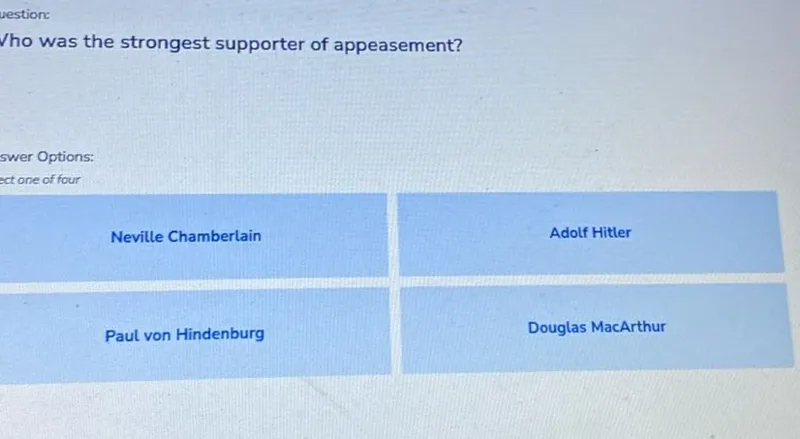The answer is Neville Chamberlain.
Neville Chamberlain, the British Prime Minister from 1937 to 1940, is widely recognized as the strongest supporter of the policy of appeasement. He is most famously associated with the Munich Agreement of 1938, where he allowed Nazi Germany to annex the Sudetenland region of Czechoslovakia in an effort to avoid war. Chamberlain believed that satisfying the reasonable demands of Germany would maintain peace in Europe.
Adolf Hitler, the leader of Nazi Germany, was not a supporter of appeasement; rather, he was the beneficiary of it. His aggressive expansionist policies were the reason appeasement was pursued by other European leaders, particularly Chamberlain, in an attempt to prevent another large-scale war.
Paul von Hindenburg was the President of Germany before Hitler's rise to power. He is not associated with the policy of appeasement. His role was more about the internal politics of Germany during the Weimar Republic and the early years of Nazi rule.
Douglas MacArthur was an American general and is not related to the policy of appeasement. His military career was primarily focused on the Pacific theater during World War II and later in the Korean War. He had no involvement in the European diplomatic policies of the 1930s.






